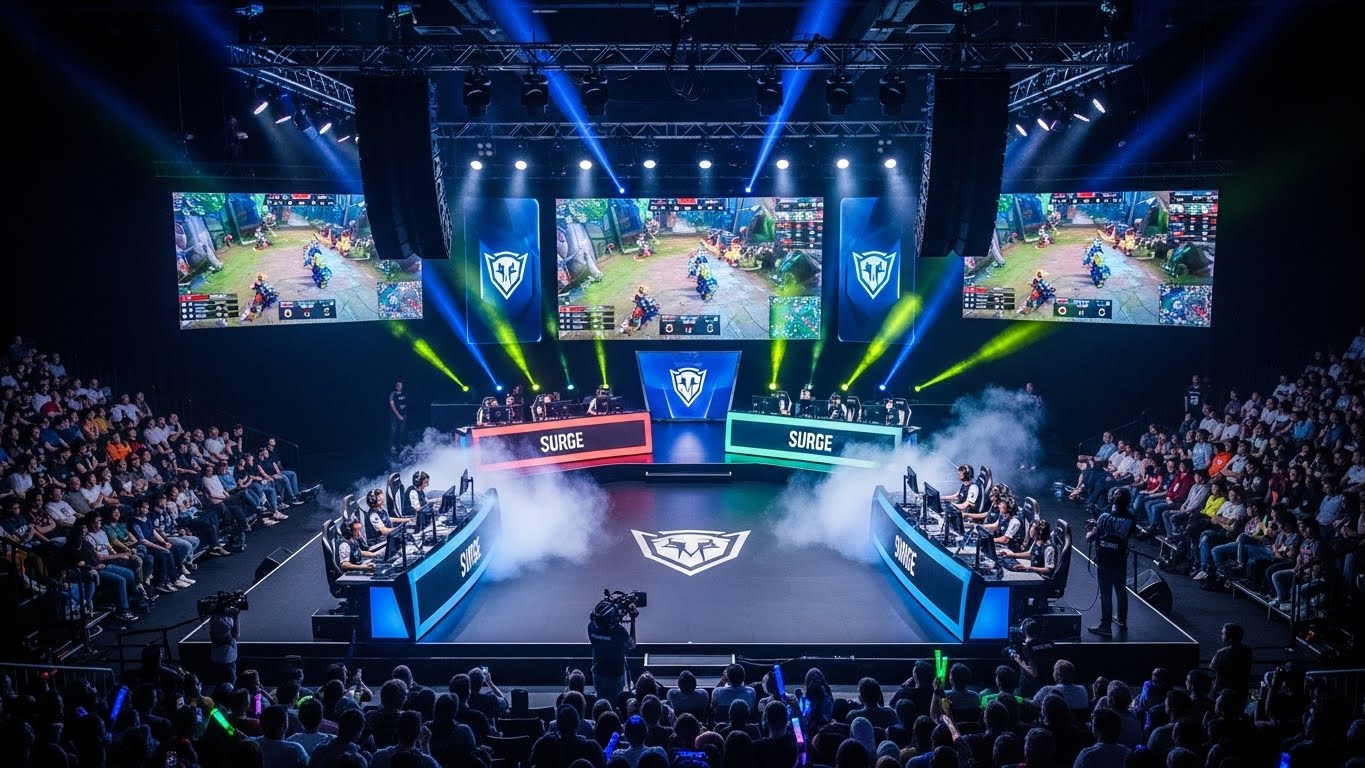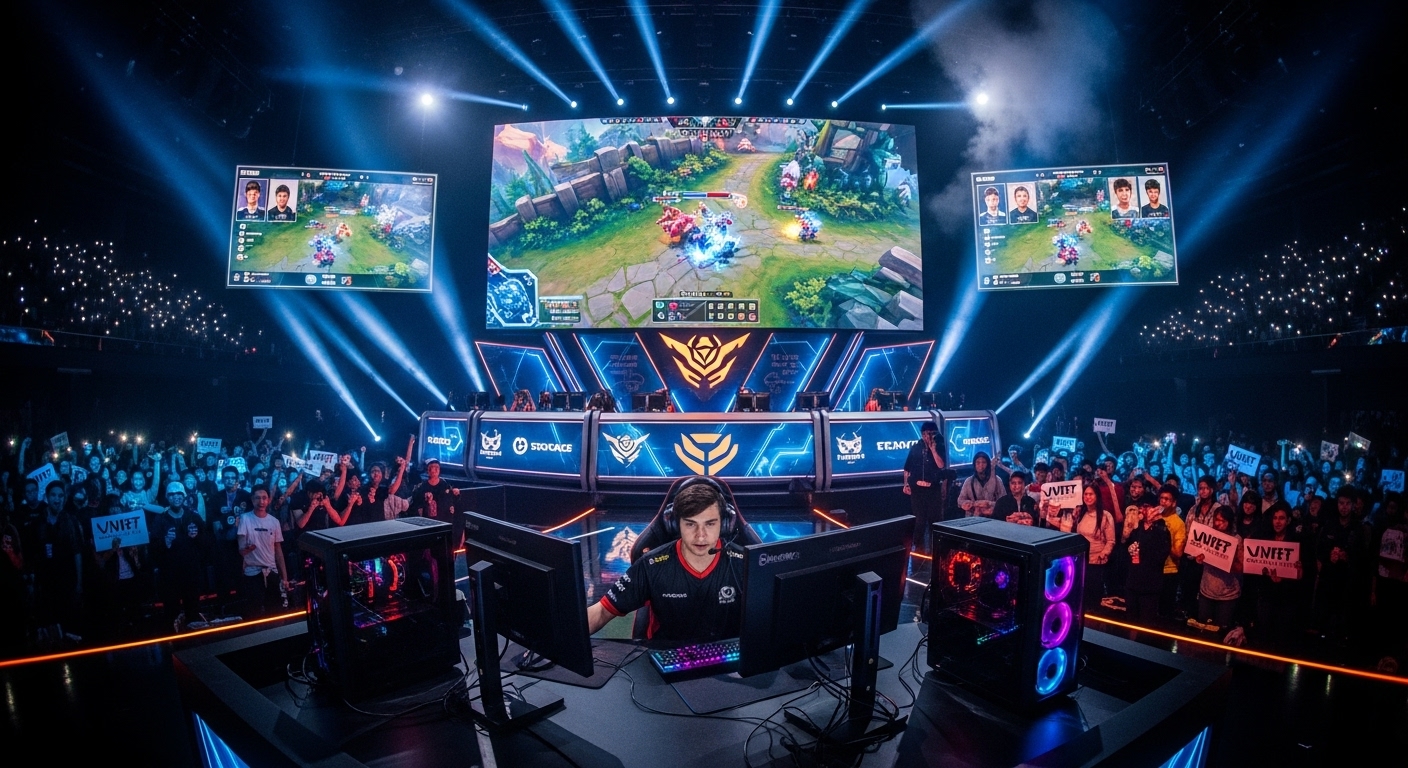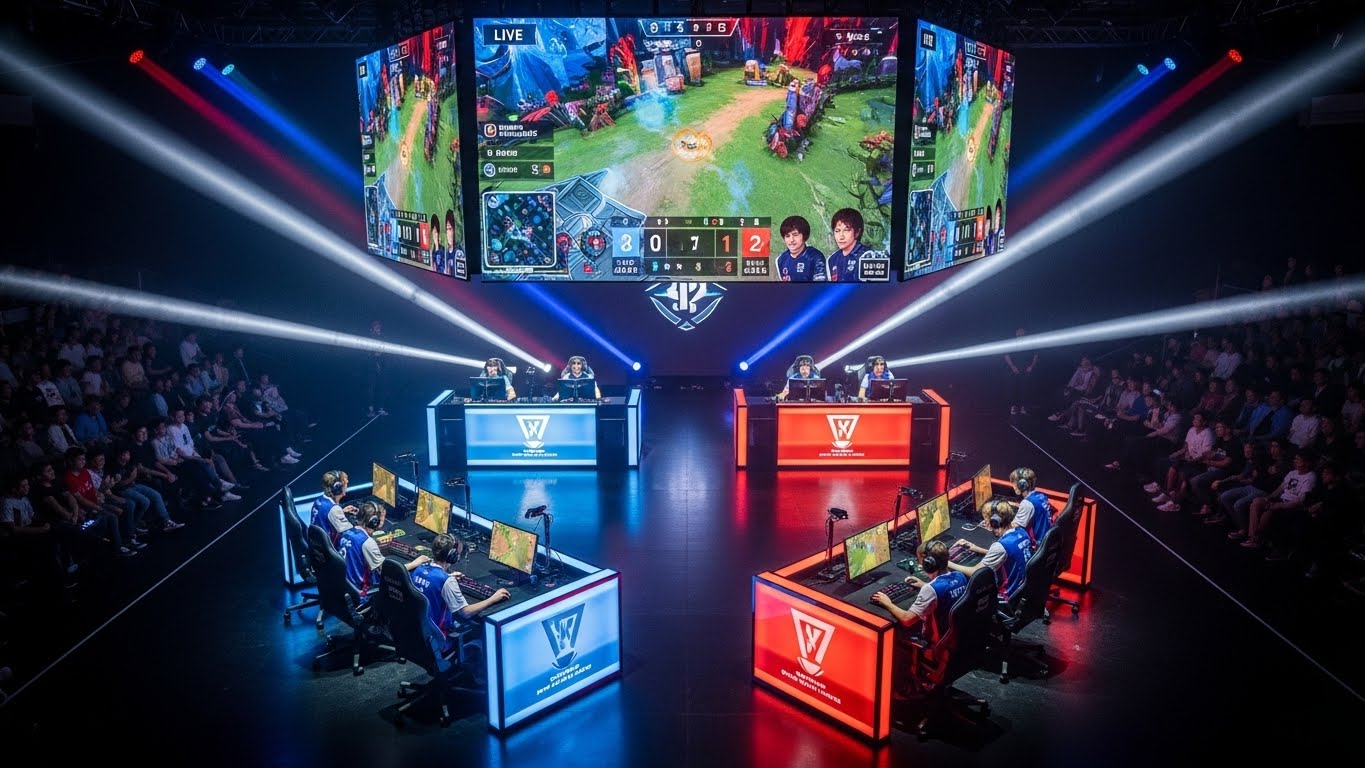In recent years, esports has emerged as a powerful force in the world of entertainment. What was once a niche subculture is now a global phenomenon, attracting millions of viewers, professional players, and major corporate sponsors. From its humble beginnings in local tournaments to becoming a multi-billion-dollar industry, esports has quickly established itself as a mainstream form of competitive entertainment. But how did we get here, and what does the future hold for this rapidly growing sector?
The Emergence of Esports: From Casual Gaming to Professional Competition
Esports, or electronic sports, refers to competitive video gaming where players or teams compete in organized events, often with significant prizes at stake. These tournaments can range from small-scale competitions between friends to large-scale global events, attracting millions of viewers both online and in person. While gaming itself has been around for decades, it wasn’t until the late 2000s and early 2010s that esports truly began to take off as a recognized industry.
The first major milestone in esports was the advent of online multiplayer games, which allowed players from around the world to compete against each other without the need for physical proximity. Games like Warcraft III, StarCraft II, and Counter-Strike laid the foundation for competitive gaming, and over time, major tournaments such as The International for Dota 2 and The League of Legends World Championship began to attract global attention.
The Growing Popularity of Esports
The rise of esports can be attributed to a variety of factors, but one of the most significant is the increasing accessibility of gaming. Unlike traditional sports, where one needs specific equipment or facilities to participate, esports only requires a gaming console or PC, an internet connection, and the desire to compete. This lower barrier to entry has made gaming more inclusive, allowing players from all walks of life to join the esports community.
At the same time, the growth of live streaming platforms like Twitch and YouTube Gaming has been a game-changer for the esports scene. These platforms have allowed players to stream their gameplay in real time, building personal brands and creating direct connections with their audiences. Fans can now watch their favorite players and teams compete, cheer them on, and even interact with them during live broadcasts, all from the comfort of their own homes.
The combination of accessibility and streaming platforms has led to a massive increase in viewership. Major esports tournaments regularly attract millions of viewers worldwide, rivaling the viewership numbers of traditional sports events. The International, for example, has set records with its multi-million-dollar prize pool and live stream audience, further cementing esports as a dominant form of entertainment.
The Professionalization of Esports
As esports has grown in popularity, it has also become more professionalized. Today, competitive gaming is not just a hobby for enthusiasts; it’s a legitimate career path for many. Professional esports players train for hours each day, honing their skills, studying strategies, and improving their gameplay. They are supported by teams, coaches, analysts, and even physical trainers who help optimize their performance.
The financial aspect of esports has also evolved dramatically. Professional players now earn salaries from their teams, winnings from tournaments, sponsorship deals, and even revenue from streaming and content creation. Top-tier players can earn millions of dollars in a single year, with some achieving celebrity status in the gaming world.
In addition to individual players, esports teams have become highly organized, with full-time staff handling everything from management and marketing to strategy and performance analysis. Just like traditional sports teams, these esports organizations are backed by investors, sponsors, and even celebrities, reflecting the growing business potential of the esports industry.
Esports Tournaments: The Heart of the Industry
Esports tournaments are where the action happens. These events showcase the highest level of competitive gaming, with players and teams battling it out for substantial prize pools and global recognition. Some of the biggest esports tournaments include the League of Legends World Championship, The International for Dota 2, and the Overwatch League.
These tournaments are massive spectacles, drawing in huge crowds and offering production values similar to traditional sports broadcasts. Fans watch the events in person or via live streams, while commentators provide analysis and insight, similar to how sports broadcasters cover live games. The production of these events is top-notch, with high-definition broadcasts, on-stage interviews, and even behind-the-scenes content to keep fans engaged.
In many ways, these esports tournaments have become cultural events in their own right, with fans dressing up as their favorite characters, singing team chants, and creating an electric atmosphere at the live events. The excitement and intensity of these tournaments mirror those of major sports leagues like the NFL or NBA, creating a shared experience for fans across the globe.
The Business of Esports: Sponsorships and Revenue Streams
Esports is not just a hobby for players; it’s a thriving business. With a rapidly growing global fanbase, the esports industry has attracted major corporate sponsors and investors looking to tap into its massive potential. Companies such as Intel, Coca-Cola, Nike, and Red Bull have partnered with esports organizations and tournaments, providing funding, equipment, and even specialized products tailored to the esports community.
In addition to sponsorships, esports generates revenue through advertising, media rights, merchandise sales, and ticket sales to live events. The increasing mainstream appeal of esports has led to television networks, streaming platforms, and even traditional sports leagues securing broadcast rights for major tournaments. This cross-industry collaboration is helping to push esports further into the public eye, attracting new audiences and increasing its global reach.
For players and teams, sponsorships and advertising deals can significantly boost their earnings. Popular players and influencers can monetize their personal brand by partnering with brands, promoting products, and creating content. These sponsorship deals are similar to the endorsement deals seen in traditional sports, where athletes promote products in exchange for compensation.
The Future of Esports: What Lies Ahead?
The future of esports looks incredibly promising, with several key trends indicating that the industry will continue to grow. One major factor is the continued advancement of technology. As gaming hardware improves, so does the quality of the esports experience. Virtual reality (VR) and augmented reality (AR) are expected to play a significant role in the future of esports, providing even more immersive gaming experiences for both players and fans.
Additionally, esports is beginning to gain recognition in the academic world. Many universities now offer scholarships for esports athletes, and some have even built dedicated esports arenas on campus. This trend is helping to legitimize esports as a legitimate form of competition and a viable career path for students interested in gaming, broadcasting, or event management.
As esports continues to evolve, it’s also likely that we’ll see even more crossover with traditional sports. Some traditional sports leagues have already shown interest in investing in esports, and as the two worlds converge, we may see more hybrid events that feature both digital and physical competition. The possibility of esports becoming part of the Olympic Games has also been discussed, though it remains to be seen whether that will come to fruition.
Conclusion: Esports as the Future of Competitive Entertainment
Esports has transformed from a niche hobby to a mainstream global industry, and it shows no signs of slowing down. With a growing fanbase, increasing corporate investment, and a professionalized infrastructure, esports is poised to continue reshaping the landscape of competitive entertainment. Whether you’re a gamer, a fan, or simply someone looking for exciting and fast-paced entertainment, esports offers something for everyone.
As the industry continues to grow, we can expect to see even more innovation, new games, and global tournaments that bring fans together in ways that were once unimaginable. Esports has undoubtedly become a defining part of the modern entertainment world, and its future looks brighter than ever.




